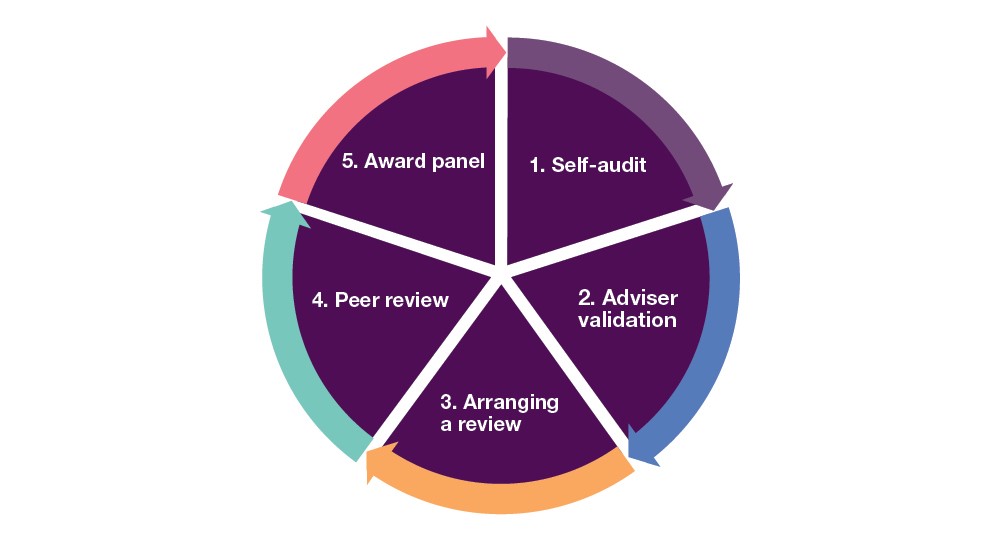In this blog, Clare Hughes from the National Autistic Society discusses how autism accreditation is improving prison standards, and talks about how the training benefits staff and prisoners alike.
Autistic people can end up in the prison system, just like anyone else. Although the exact number of autistic people in prison isn’t known, in HMYOI Feltham last year, they represented 4.5% of the population. Research has found that autistic people “represent some of the most vulnerable people in the offender population.” *
National Autistic Society has been working with a number of prisons since 2014, to develop an Autism Accreditation standard for prisons to improve the quality of provision for autistic people.
Although the numbers of autistic prisoners are small, their experience can be more traumatic because their needs are often hidden and remain unmet. Our work with Feltham and other prisons has shown that improved understanding of autism among prison staff, simple adjustments and better support can address many of these issues and improve prison life for prisoners and staff alike.
The Autism Accreditation process
We have been absolutely delighted by the enthusiasm and motivation of the staff in the prisons working towards Autism Accreditation. The process to achieve Autism Accreditation is set out below:

There have been amazing examples of practice across all the prisons that we are working with. The standards require prisons to look at all aspects of the prison, from induction to preparation for release and everything in between. It encourages joint working of the agencies within a prison, which in turn provides a consistent approach and a better working relationship within the prison.
Training is key to gaining Autism Accreditation, helping staff to understand the different ways autism can affect prisoners and how to support them. Some of the prisons have looked at different ways of delivering this: online, face-to-face, and autistic people and family members, with experience of the CJS, coming in to the prison to share their own lived experience. We also help staff think about how they can adapt the physical environment of the prison, which can affect prisoners, particularly those who are extremely sensitive to things like sound and light. One prison has involved autistic people in this and has asked them to provide staff with information about what aspects of the prison environment they find particularly challenging.
How the Prison Standard was developed
Autism Accreditation is an autism specific quality assurance programme managed by the National Autistic Society. It provides a unified standard of excellence and a systematic framework for on-going self-examination and development. It aims to continuously improve the quality of service provision for autistic people. There are over 500 members of accreditation across the UK and abroad from a wide range of service provision. Autism Accreditation has a long history, dating back to 1993.
In 2014, staff from HMYOI Feltham asked if we would consider developing accreditation standards for prisons. They had previously audited their mental health services against another audit tool, but felt that in order to provide the best outcomes for autistic prisoners, they required a whole-prison approach. We worked together to develop standards relating to the custodial aspect of the prison, education mental health and primary care.
In order to ensure that the standards were equally relevant to adult prisons, we began working with HMP Wakefield, HMP YOI Parc and HMP Dovegate. The former Prisons’ Minister, Andrew Selous, heard about the work that was taking place at HMYOI Feltham and visited to learn more. Following his visit, he wrote to all prison governors across England and Wales, encouraging them to consider Autism Accreditation. Since then, more than 30 YOIs and adult prisons have contacted us, interested in Autism Accreditation.
In developing the standards, we were guided by the prisons about what they felt worked and didn’t work in relation to autistic prisoners and we also looked existing research and inspection criteria to help shape the standards and inform our knowledge about what is already required.
Feltham’s achievement
In 2016, HMYOI Feltham became the first prison to achieve Autism Accreditation. Due to this work, HMYOI Feltham, their partners and the National Autistic Society were recently awarded the Sternberg Clinical Innovation Award by the Royal College of Speech and Language Therapists.
When HMYOI Feltham underwent their peer review, staff spoke to the review team about a ‘culture change’ that had taken place since they started working towards Autism Accreditation. Given the challenging times that are facing prisons, this was more than we could have ever expected.
We’re already working with another seven prisons and hope they and many others will follow in Feltham’s footsteps in the months and years to come.
To find out more visit the National Autistic Society website.
* Talbot, J (2008), No one knows: Prisoners Voices: Experiences of the criminal justice system by prisoners with learning disabilities and difficulties. London: Prison Reform Trust.
What's new
Blogs
Homelessness Strategy Blog
Publications
The Young Review - 10 Years On
Latest on X
The role is for a leader from an organisation focused on racially minoritised people, with expertise in service delivery, policy, advocacy, or related areas in criminal justice. Racial disparities are present at every CJS stage. This role ensures these voices are central in shaping policy to help address and eradicate them. Apply by Mon 18 Nov, 10am. More info: https://www.clinks.org/voluntary-community-sector/vacancies/15566 #CriminalJustice #RR3 #RacialEquity

